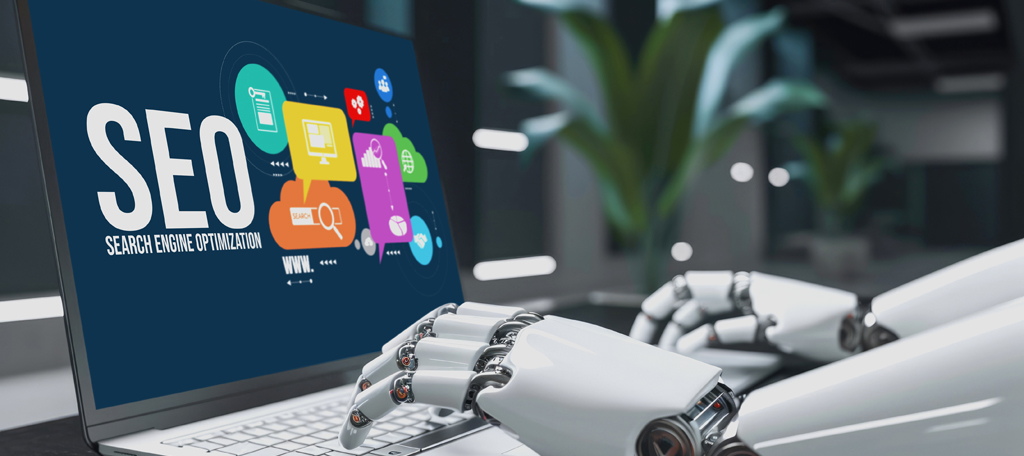Migrating a CMS Without Losing SEO: How to Avoid Critical Mistakes in the Age of AI Search

Contents
Migrating a CMS is one of the most delicate technical decisions for any organization, but now, beyond the usual risks (traffic loss, 404 errors, performance drops…), a new disruptive factor must be considered: AI-powered search engines are changing the rules of SEO. Platforms like ChatGPT, Perplexity, and Gemini now provide zero-click answers and reshape how digital content is discovered.
Is your CMS or DXP ready for this new search scenario? This article explores the major risks in CMS migrations and how leading platforms are beginning to adapt — or not — to the impact of AI on SEO.
Why Can a CMS Migration Put Your SEO at Risk?
Migrating a CMS is not just about moving content; it’s about reconfiguring an entire digital architecture. Many organizations underestimate what’s at stake and, without careful planning, can lose years of organic visibility in a matter of weeks.
The most common migration mistakes include:
- Changing URLs without proper 301 redirects.
- Content structures that hinder indexing or fragment link equity.
- Failure to preserve structured data and SEO metadata.
- Performance issues on mobile or degraded Core Web Vitals due to new templates or frontend changes.
“Every time you change architecture, content, or technology, you also affect your site’s search visibility. And recovery isn’t always guaranteed.”
What’s the Solution to Avoid an SEO Disaster During Migration?
There are several critical technical steps to prevent negative SEO impact during a migration. Each plays a vital role in preserving visibility and traffic.
SEO Audit Before Migration
Start with a complete picture of the current site: identify top-ranking URLs, traffic patterns, valuable backlinks, indexing issues, and high-performing content. Without this map, any change is a shot in the dark.
URL Mapping and Redirect Strategy
Create a clear 1:1 mapping between old and new URLs. Proper 301 redirects retain authority and prevent traffic loss. Poorly planned redirects can dilute rankings or generate critical errors.
Performance and Load Speed Review
New platforms may introduce changes to code, design, or server setup. Any negative effect on load times or Core Web Vitals — especially on mobile — will be penalized. Use specific tools and monitor continuously.
Structured Data and Open Graph Compatibility
Structured content helps search engines understand page context and function. Maintaining or improving existing semantic markup ensures continued visibility in rich snippets and featured cards.
Migrations often introduce invisible errors: accidentally blocked pages, outdated sitemaps, or misused canonical tags. Reviewing these files is essential to avoid deindexing or duplication issues.
What’s Changing in SEO with AI-Powered Search Engines?
The rise of conversational search — driven by generative AI — is fragmenting user attention and lowering CTR on traditional search results. ChatGPT, Perplexity, and Gemini now deliver direct answers, often without users visiting any websites.
This brings immediate consequences:
- More visibility in the answer box, but fewer clicks to original content.
- Increased need for content to be structured and understandable by language models.
- Growing importance of clear, contextual, and semantically rich writing.
Is traditional SEO dead? No. But it’s being radically transformed.
Which CMS and DXP Platforms Are Adapting to This New Reality?
Adobe Experience Manager
- Includes generative AI tools via Adobe Sensei to optimize content for conversational search readiness.
- Headless architecture enables structured, API-first delivery— ideal for integration with AI systems and semantic engines.
WordPress VIP
- Offers highly optimized and customizable content structures, with plugins like RankMath and Yoast supporting AI-driven SEO strategies.
- Recently integrated with OpenAI-powered tools for contextual content generation.
Adobe Franklin
- Markdown-based structured content and edge delivery provide speed and performance advantages.
- Focuses on minimizing technical friction, which benefits both traditional and emerging SEO models.
“Content that isn’t structured, fast, and clearly answering intent will be invisible in the next generation of search engines.”
Technical SEO Checklist Before Migrating Any CMS
Before any migration, these key items must be reviewed:
- Current traffic and indexed URLs analysis
- Permanent redirect planning
- Core Web Vitals validation in the new environment
- Compliance checks for robots.txt, canonical tags, and hreflangs
- Semantic structure testing and rich snippet compatibility
- Content evaluation with AI tools to ensure clarity and context
- Response simulation in conversational engines like Perplexity or Bing AI
Migrating in a Transforming Landscape
It’s no longer just about preserving traffic; it’s about maintaining relevance in a web that now talks to machines, not just people. Poorly executed migrations don’t just reduce visits — they can mean total invisibility in the search engines of tomorrow.
Choosing a CMS that’s technically robust and future-ready for AI-driven search will define the digital resilience of your brand.
Sources and References
- Google Search Central. “Best practices for site migrations” (2024)
- Adobe Experience League. “Using AI and machine learning in Adobe Experience Manager” (2023)
- Yoast SEO Blog. “AI and SEO: What’s Changing and What’s Not” (2024)
- Perplexity.ai Research Blog. “Understanding Retrieval-Augmented Generation in Search” (2024)
- ScaledOn. “ChatGPT’s Growing Influence on Search Behavior: What It Means for SEO” (2025)


